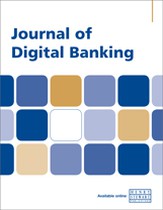Crypto mining business models: Points of contact to the AIFMD
Abstract
This paper provides a technical overview and legal analysis of the activity of miners in proof of work-based crypto assets, focusing on the Bitcoin Blockchain as the most prominent example. The result of this analysis — mainly that mining is a financial service similar to the services performed by traditional financial intermediaries — is used as the foundation of a detailed legal analysis of a widespread crypto mining business model under the Alternative Investment Fund Managers Directive (AIFMD). The paper shows that such business models offer mining packages directly to retail investors via the Internet, and the operators of these so-called mining farms thereby raise capital from the public to generate a pooled return for investors in the form of ‘mined’ crypto assets, for example, Bitcoin (‘BTC’). A detailed analysis of this fund-like structure leads to the conclusion that many currently operating crypto mining business models are already regulated by the AIFMD if all the relevant criteria of the AIFMD are fulfilled. This legal assessment has to be made on a case-by-case basis and entails serious consequences — depending on the national transposition of the AIFMD, it can even result in the prohibition of marketing units and shares of such AIFs to retail investors, as is the case in Austria. Operators of such business models that are already active on the market and that fall under the regulation of the AIFMD would be faced with registration or authorisation requirements and potential legal repercussions for operating an AIF without licence.
The full article is available to subscribers to the journal.
Author's Biography
Stefan Tomanek is a legal expert in the Department for Prudential Supervision Asset Management, Prospectus, Consumer Information, at the Austrian Financial Market Authority (FMA). While the supervision of undertakings for collective investments in transferable securities (UCITS) and alternative investment funds (AIFs) is the main focus of his work, he is also heavily involved in the area of crypto assets and related business models. In this context, he is also a delegate in international committees as well as The European Securities and Markets Authority (ESMA) committees. Prior to his work at the FMA, he gained valuable experience in the Legal & Compliance Department of a large Austrian bank. He holds a master’s degree in law from the University of Vienna.
Ralph Rirsch is a supervisor at the Austrian FMA in the Department for Integrated Conduct Supervision of Banks. He is specialised in the PRIIPs Regulation (on key information documents for packaged retail and insurance-based investment products) and new technologies. Before his time at the FMA, he worked as a consultant in the Austrian banking sector with a focus on regulatory issues (eg markets in financial instruments directive (MiFID II), payment services directive (PSD2)), large-scale IT implementations and database management. Additionally, he was active as a freelance systemic consultant for small and medium enterprises specialised in group dynamics. His academic background is in law (University of Vienna) and international business administration (Vienna University of Economics and Business).
Marlene Wintersberger is a legal expert at the Austrian FMA in the Department for Prudential Supervision Asset Management, Prospectus, Consumer Information. She is responsible for the supervision of management companies that manage UCITS or AIFs and Corporate Pension Insurance Funds. She passed her legal examination with distinction, was admitted to practice as an attorney-at-law and worked for many years as an independent lawyer. She holds a doctorate in law (University of Vienna).
